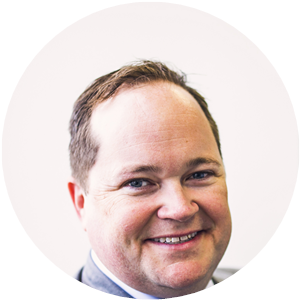My wife and I have family in rural America. When I tell them that my main business is representing healthcare organizations and governments in real estate lease negotiations, I can tell what they’re thinking: You really get paid for that?
We take it for granted, but commercial real estate brokerage is a great business. It isn’t very capital intensive. There’s rarely pressure on commissions, everyone (usually) understands the model and it is (almost) infinitely scalable.
As an SIOR, a leader in the market, and business owner, what is the proper response to that? One option is to be thankful to live in a time and place where this business is possible. Another is to milk all you can out of a good situation. A third is to look for opportunities to share some good fortune through charitable donations.
I’d like to propose a few other options that perhaps hadn’t occurred to you, at least initially - using our gifts within the community, within our organizations, and within our households.
Your Community
ISIS, police brutality, weak political options... I don’t have to look far to find something in this world that feels broken. The cocoon of success in our end of town is only so thick and requires a significant amount of concentration to maintain.
The fact is, people living seven miles away are experiencing an entirely different kind of America. There’s a complete breakdown in the fabric of neighborhoods, lack of leadership, and systemic poverty that is working day and night to ensure its place for generations.
No commercial real estate firm is equipped to tackle something like this on our own. What seems straight forward is actually complex and requires specialized expertise in order to avoid doing further harm to sensitive neighborhoods (See Toxic Charity).
I’m not good enough to understand how to help without hurting, but an organization found me that is. Focused Community Strategies (FCS) tackles poverty one neighborhood at a time. Beginning with a Flourishing Neighborhood Index (FNI), they rate the neighborhood on 8 data points.
FCS then benchmarks where the neighborhood is currently and how far they could reasonably improve along the continuum. Roles are split among stakeholders (residents, public officials, business owners, faith leaders, etc.) so that no one eats the elephant alone. Everyone has a manageable set of tasks to complete to achieve success.
How many 8,000 sq. ft. buildings are there in your worst neighborhoods? What if you could turn ten of them into for-profit grocery stores delivering healthy foods to a population that often eats dinner out the back of an ice cream truck? Your passion for serving may not be opening a grocery store (like our Carver Neighborhood Market) but my point is this: you are worth more to these communities than the money you can give.
Your Organization
A second opportunity we have to give back is through our organizations. In the twilight of our lives, none of us wants to look back and feel that our accomplishments were built at the expense of others in our organizations.
I heard Mark Fernandes from the Luck Companies speak a few years ago and it changed the course of my life. He said, “If you think you’re being kind to someone by leaving them in a position for which they are not gifted, you risk wasting their life.”
For me, that meant creating an organization with narrow enough roles that our partners (we don’t have employees) can use their unique gifts. But it also means that we spend an hour each week talking about how our organization fits into the narrative of our city; how HIV patients will have a better experience in the clinic we negotiated, how behavioral health is an important piece of public safety in our community and Grady Hospital will have another ten years to provide it in a space we just leased.
Your work is important to the fabric of your city and if you don’t connect that importance for others in your organization, you risk wasting their talents, and a greater opportunity to help others in the community. It takes time, but engagement is worth it.
Your Home
Lastly, we can express our gratitude for this great business at home. I completed a Lifework Leadership course last year and one of the speakers was Louis Upkins. Somewhat apologetically, he posed the question, “What if we treated our spouse and kids like a client?”
I know. They’re more important than a client, right? But do I always treat them that way? Do I answer the phone as enthusiastically for them as I do for a great client? Do I end the call the same? Do I give them as much of my focused attention?
I don’t have any of these down. I struggle with being thankful and with conveying it through the community, my company, and at home. But I’d leave you with this: We have been blessed with things in our lives for which we have paid nothing, and whatever perspective you bring to life, most agree that the proper response is something. I’d love to hear what your something is. And here’s a hint: it's more expensive than just money. Love requires more, but you knew that.






